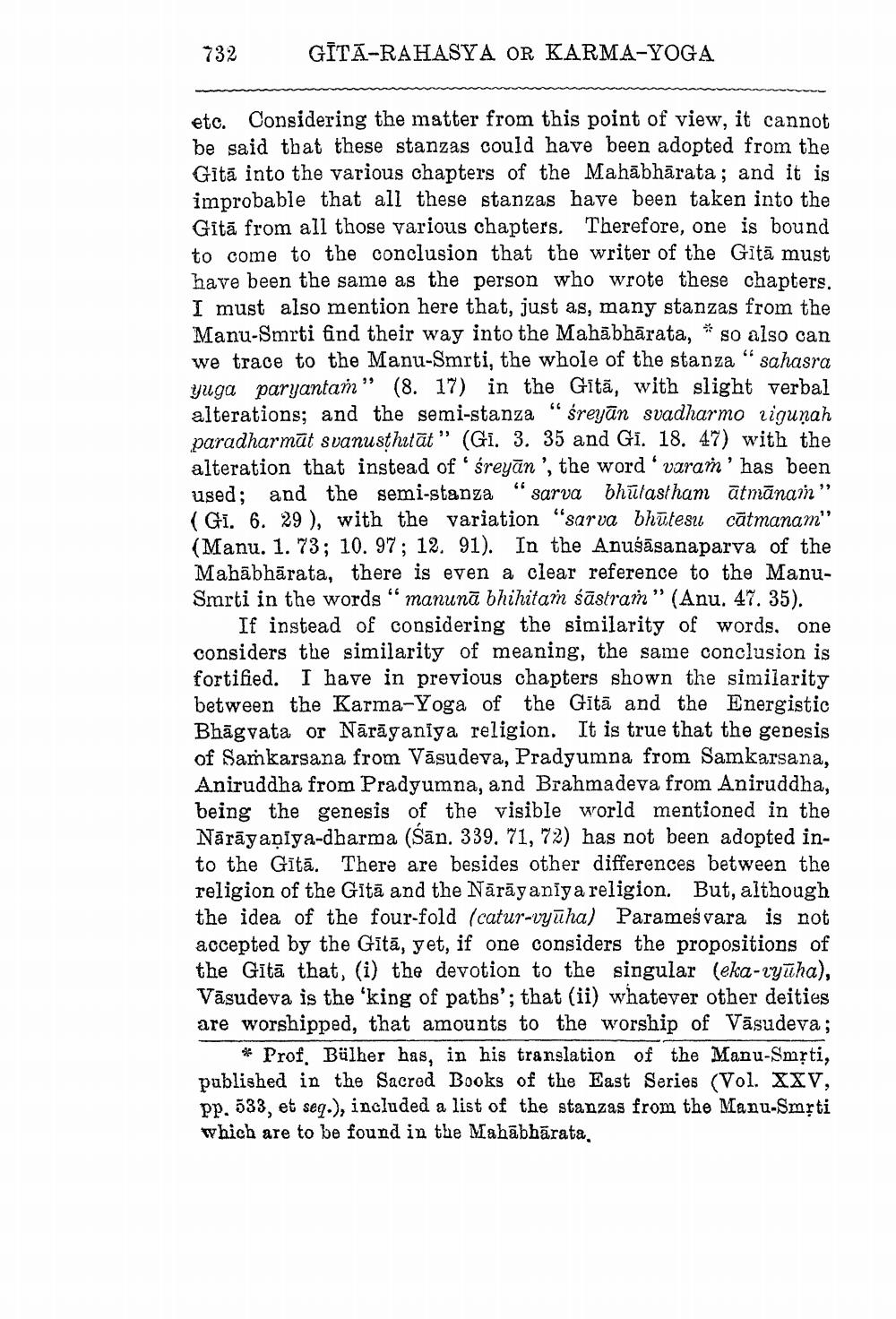________________
732
GITA-RAHASYA OR KARMA-YOGA
etc. Considering the matter from this point of view, it cannot be said that these stanzas could have been adopted from the Gītā into the various chapters of the Mahābhārata; and it is improbable that all these stanzas have been taken into the Gitā from all those various chapters. Therefore, one is bound to come to the conclusion that the writer of the Gitā must have been the same as the person who wrote these chapters. I must also mention here that, just as, many stanzas from the Manu-Smrti find their way into the Mahābhārata, * so also can we trace to the Manu-Smrti, the whole of the stanza “sahasra yuga paryantan" (8. 17) in the Gitā, with slight verbal alterations; and the semi-stanza “sreyūn svadharmo zigunah paradharmāt svanusthetāt" (Gi. 3. 35 and Gi. 18. 47) with the alteration that instead of 'śreyān ', the word 'varam' has been used: and the semi-stanza" sarva bhūlasthan ātmānam (Gi. 6. 29), with the variation “sarva bhūtesu cātmanam" (Manu. 1. 73; 10. 97; 12. 91). In the Anušāsanaparva of the Mahābhārata, there is even a clear reference to the ManuSmrti in the words“ manunā bhihitain śāstram" (Anu. 47. 35).
If instead of considering the similarity of words. one considers the similarity of meaning, the same conclusion is fortified. I have in previous chapters shown the similarity between the Karma-Yoga of the Gītā and the Energistic Bhāgvata or Nārāyaniya religion. It is true that the genesis of Samkarsana from Vāsudeva, Pradyumna from Samkarsana, Aniruddha from Pradyumna, and Brahmadeva from Aniruddha, being the genesis of the visible world mentioned in the Nārāyaniya-dharma (Sān. 339, 71, 72) has not been adopted into the Gītā. There are besides other differences between the religion of the Gītā and the Nārāyaniya religion. But, although the idea of the four-fold (catur-vyūha) Parames vara is not accepted by the Gītā, yet, if one considers the propositions of the Gitā that, (i) the devotion to the singular (eka-ryaha), Vāsudeva is the 'king of paths'; that (ii) whatever other deities are worshipped, that amounts to the worship of Vāsudeva;
* Prof. Bülher has, in his translation of the Manu-Smrti, published in the Sacred Books of the East Series (Vol. XXV, pp. 533, et seq.), included a list of the stanzas from the Manu-Smrti which are to be found in the Mahābhārata.




